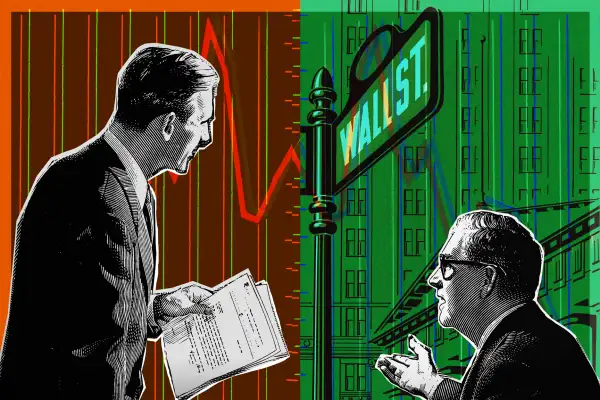Wall Street Experts Warn Stocks May Fall Even Further
Money is not a client of any investment adviser featured on this page. The information provided on this page is for educational purposes only and is not intended as investment advice. Money does not offer advisory services.

September has been a brutal month for investors. Stocks logged their worst day since June 2020 two weeks ago, and every major index is now officially in a bear market. On Thursday, the S&P 500 was trading nearly 25% lower than it was at the start of 2022.
Unfortunately, some Wall Street experts are warning that the pain could continue as the Federal Reserve continues its uphill battle with inflation. The central bank has been rapidly raising interest rates — five times already this year — in an effort to cool the economy and bring down consumer prices, and the fallout of those rate hikes have been especially painful for the stock market.
Higher rates lead to uncertainty and volatility in the markets, and are generally bad for stock performance. And there are reasons experts think that things could get worse for investors in the short term.
Are we in a recession? Why stocks could drop further
Experts from investment giant BlackRock believe that stock prices right now aren’t fully accounting for the ramifications of a recession caused by those rate hikes.
“Many central banks aren’t acknowledging the extent of recession needed to rapidly reduce inflation,” a team of experts led by Jean Boivin, head of the BlackRock Investment Institute, wrote Monday. “Markets haven’t priced that so we shun most stocks.”
A team of analysts from Goldman Sachs has expressed a similar sentiment. Stock prices “may not fully reflect” the risks associated with continued rate hikes and the resulting moves in the bond market, they wrote Monday. As a result, stocks “may have to decline further to reach a market trough,” according to the team led by Christian Mueller-Glissmann, Goldman’s head of asset allocation research.
Goldman Sachs recently updated its year-end forecast for the S&P 500 to 3,600 points — about 1% less than today's levels — in anticipation of further rate hikes. If there's a recession that's worse than anticipated, they expected that number to drop to 3,400 points — a 6.7% drop from today.
Yet another warning comes from Merrill’s investment experts, who recently said that the stock market is in a “reset phase” as it tries to account for “higher rates, a stronger dollar, lower economic growth and earnings, and heightened geopolitical risk all at the same time.”
That’s a lengthy process, the analysts said, adding that they expect “choppy market action” from now until the end of the year.
The bottom line? Stocks could fall even further before prices stabilize and recovery begins.
It’s not all bad news for the stock market
Thankfully, not everyone is looking at a half-empty glass. In a blog post last week, Craig Fehr, lead of investment strategy for Edward Jones, emphasized that there’s still cause for optimism.
He notes that the Federal Reserve tends to hike rates less aggressively as the economy weakens, not to mention the fact that markets usually perform better after interest rates have peaked.
Markets “should eventually start recovering” as central banks start to ease off the brakes, Fehr writes. He says investors can use the time before that happens to rebalance their portfolios and take advantage of lower asset prices.
More from Money:
2 Investing Moves to Make Now That the S&P 500, Nasdaq and Dow Are All in Bear Markets
Women Are Handling Stock Market Volatility Way Better Than Men
Why the Recent Stock Market Plunge May Bring 'Buying Opportunities for Patient Investors'

